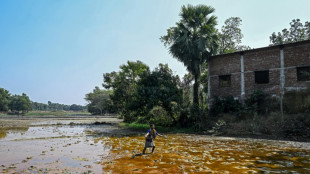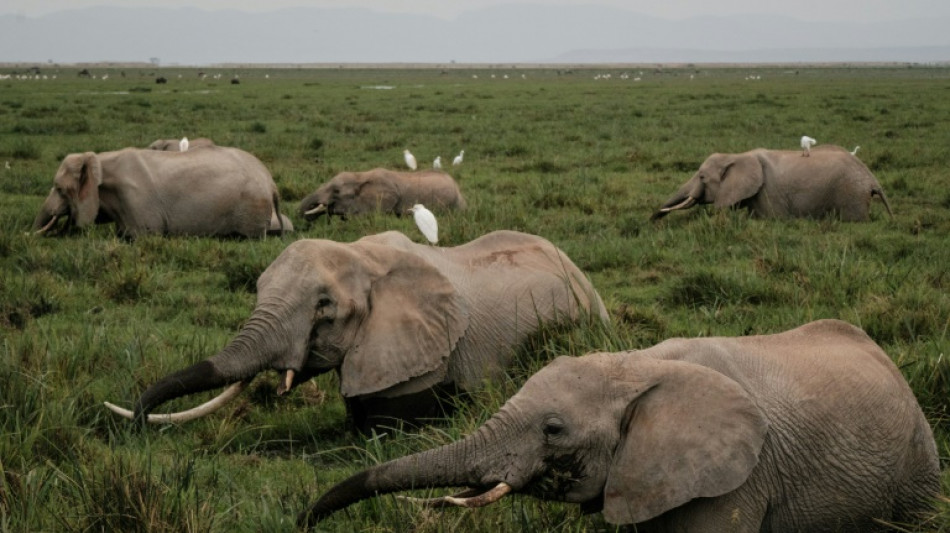
-
 Brazil binman finds newborn baby on garbage route
Brazil binman finds newborn baby on garbage route
-
US senator smashes record with marathon anti-Trump speech
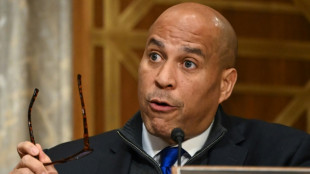
-
 Trump advisor Waltz faces new pressure over Gmail usage
Trump advisor Waltz faces new pressure over Gmail usage
-
Niger junta frees ministers of overthrown government

-
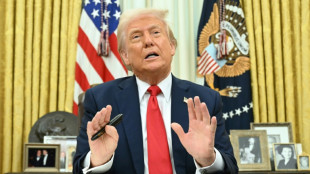 Trump set to unleash 'Liberation Day' tariffs
Trump set to unleash 'Liberation Day' tariffs
-
Boeing chief to acknowledge 'serious missteps' at US Senate hearing

-
 Real Madrid hold Real Sociedad in eight-goal thriller to reach Copa del Rey final
Real Madrid hold Real Sociedad in eight-goal thriller to reach Copa del Rey final
-
Nuno salutes 'special' Elanga after stunning strike fires Forest

-
 PSG survive scare against Dunkerque to reach French Cup final
PSG survive scare against Dunkerque to reach French Cup final
-
Sundowns edge Esperance as crowd violence mars quarter-final

-
 Nottingham Forest beat Man Utd, Saka scores on Arsenal return
Nottingham Forest beat Man Utd, Saka scores on Arsenal return
-
Elanga wonder-goal sinks Man Utd as Forest eye Champions League berth

-
 Stock markets mostly advance ahead of Trump tariffs deadline
Stock markets mostly advance ahead of Trump tariffs deadline
-
US movie theaters urge 45-day 'baseline' before films hit streaming

-
 Saka scores on return as Arsenal beat Fulham
Saka scores on return as Arsenal beat Fulham
-
Third-division Bielefeld shock holders Leverkusen in German Cup

-
 Ball-blasting 'Torpedo bats' making waves across MLB opening weekend
Ball-blasting 'Torpedo bats' making waves across MLB opening weekend
-
Newsmax shares surge more than 2,000% in days after IPO

-
 Thousands of Hungarians protest against Pride ban law
Thousands of Hungarians protest against Pride ban law
-
GM leads first quarter US auto sales as tariffs loom
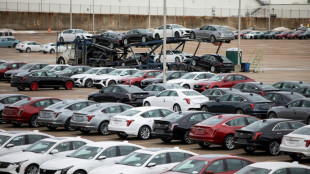
-
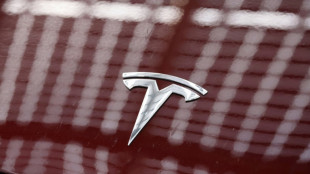 Tesla sales tumble in Europe in the first quarter
Tesla sales tumble in Europe in the first quarter
-
No 'eye for an eye' approach to US tariffs: Mexico

-
 NFL club owners back dynamic kickoffs, delay tush push vote
NFL club owners back dynamic kickoffs, delay tush push vote
-
Trump 'perfecting' new tariffs as nervous world braces
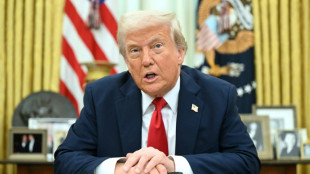
-
 Trump nominee says to press UK on Israel arms
Trump nominee says to press UK on Israel arms
-
French court says Le Pen appeal ruling could come before presidential vote

-
 The battle to control assets behind Bosnia crisis
The battle to control assets behind Bosnia crisis
-
Prabhsimran powers Punjab to IPL win over Lucknow

-
 Mass layoffs targeting 10,000 jobs hit US health agencies
Mass layoffs targeting 10,000 jobs hit US health agencies
-
Tiger's April Foolishness: plan to play Masters just a joke

-
 Myanmar quake toll passes 2,700, nation halts to honour victims
Myanmar quake toll passes 2,700, nation halts to honour victims
-
Turkish fans, artists urge Muse to cancel Istanbul gig

-
 US seeks death penalty for accused killer of insurance CEO
US seeks death penalty for accused killer of insurance CEO
-
UK govt moves to block sentencing guidelines for minority defendants

-
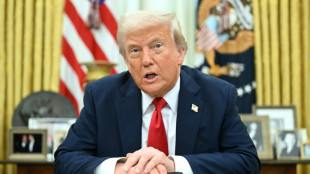 Trump puts world on edge as 'Liberation Day' tariffs loom
Trump puts world on edge as 'Liberation Day' tariffs loom
-
Swedish journalist jailed in Turkey kept 'isolated': employer

-
 Stock markets advance ahead of Trump tariffs deadline
Stock markets advance ahead of Trump tariffs deadline
-
Gulf between Everton and Liverpool has never been bigger, says Moyes

-
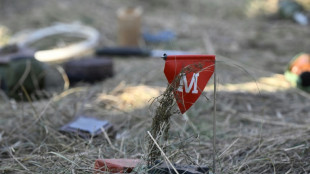 Finland to withdraw from anti-personnel mine ban treaty
Finland to withdraw from anti-personnel mine ban treaty
-
UK vows £20 million to boost drone and 'flying taxi' services

-
 Ford's US auto sales dip in first quarter as tariffs loom
Ford's US auto sales dip in first quarter as tariffs loom
-
Digging for box office gold, 'A Minecraft Movie' hits cinemas

-
 Southampton boss Juric desperate to avoid Premier League 'worst team' tag
Southampton boss Juric desperate to avoid Premier League 'worst team' tag
-
Thailand rescue dogs double as emotional support

-
 Five takeaways from Marine Le Pen verdict
Five takeaways from Marine Le Pen verdict
-
Stock markets split ahead of Trump tariffs deadline

-
 Turkish fans, artists urge Muse to cancel Istanbul gig over protest dispute
Turkish fans, artists urge Muse to cancel Istanbul gig over protest dispute
-
Former captain Edwards named new England women's cricket coach

-
 Haaland ruled out for up to seven weeks: Man City boss Guardiola
Haaland ruled out for up to seven weeks: Man City boss Guardiola
-
UK Supreme Court opens car loans hearing as banks risk huge bill
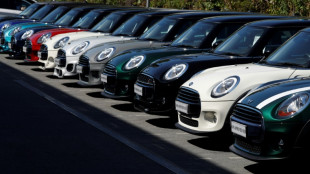

Kenyan pilot project to put price on nature's treasure
The bird count gets underway -- two members of the superb starling family, a Nubian woodpecker, and so on.
The census unfolding in the shadow of Mount Kilimanjaro is part of a project with a dual aim -- using biodiversity to make money, which will then help to preserve natural resources and support local communities.
The 5,000-hectare (12,400-acre) terrain on the edge of Amboseli National Park in southern Kenya boasts elephants, giraffes, antelopes and lions.
The reserve's owners are the Maasai people, and no fence separates the land from territory used by herders for their cows, sheep, goats and donkeys.
These days, well-heeled visitors are returning to the reserve after the Covid-19 pandemic, which had wrenching financial consequences.
"Tourism completely collapsed, and we realised that we need to find other ways of rising revenue and income to be able to continue paying the leases," said Mohanjeet Brar, managing director of tour operator Gamewatchers Safaris, which rents Selenkay from the Maasai.
The reserve has an eye on the potential from carbon credits and planned biodiversity credits -- mechanisms designed to channel funds to landowners who preserve natural hotspots for rare species and carbon storage.
- Data first -
For Selenkay, the first step towards realising these gains is to collect data -- to make an inventory of the reserve's treasure house.
Cameras and acoustic recorders are being used to give an idea of which animals are present on the reserve and in what numbers, and these are supplemented by human observations.
Over one month, morning and evening, team members are stationed at specific points to make a tally of all the animals seen and heard for 10 minutes.
"Is biodiversity higher in the conservancy than outside the conservancy and what's driving that increase?" said Andrew Davies, an assistant professor at Harvard University in the United States, who is helping the research.
"Once we know that from a scientific perspective, we can begin thinking about making a credit to sell."
Helped by a drone, the researchers are also getting a picture of the amount of carbon stored in trees and in the soil.
Tourism income from Brar's company supports the local community in many ways, helping to provide water for people and livestock and generating jobs. All of the rangers and almost all of Selenkay's staff are Maasai.
Even so, living conditions are still difficult, said Noolasho Keteko, one of the women from the Maasai village bordering the conservancy.
The crop-haired mother of eight, adorned with colourful bead jewellery, also makes money from tourist visits to the mud-hut village and from selling jewellery.
But when Selenkay closes in April and May for the rainy season, the village needs assistance, she explained.
People in the district want to prevent the land from being sold, turned into fields and fenced off, preventing wildlife from moving freely.
But a short distance from the reserve, a high fence already crosses the landscape to make way for fields.
Income from credits could ease the pressure on the environment, said one of the guides, Nicholas Koyieyo.
It would encourage herders to cut back on numbers of cattle, enabling grass and trees to regenerate, he said.
- Market question -
The big question is whether Selenkay's resources can be adequately monetised.
"Kenya has a very fast-growing population -- the land price is also high (and) there are many options for land use," Brar said.
The market for carbon credits is well-established, although far from perfect.
Under it, carbon polluters can offset their greenhouse-gas emissions by "purchasing" emissions that are reduced or saved by other members in the scheme.
But the much-touted market for biodiversity credits has yet to be created.
On Sunday, preparatory talks for a UN biodiversity summit due in December wound up in Nairobi after making scant progress.
"There's no biodiversity trading market and we have to develop that," said Davies.
"We need carbon as a first step to get the things going, to get trust from the landowners," he said.
"A lot of money needs to go back to the community, so if we start to get money and giving it to the community then they will have faith in us."
A.Rodriguezv--AMWN

